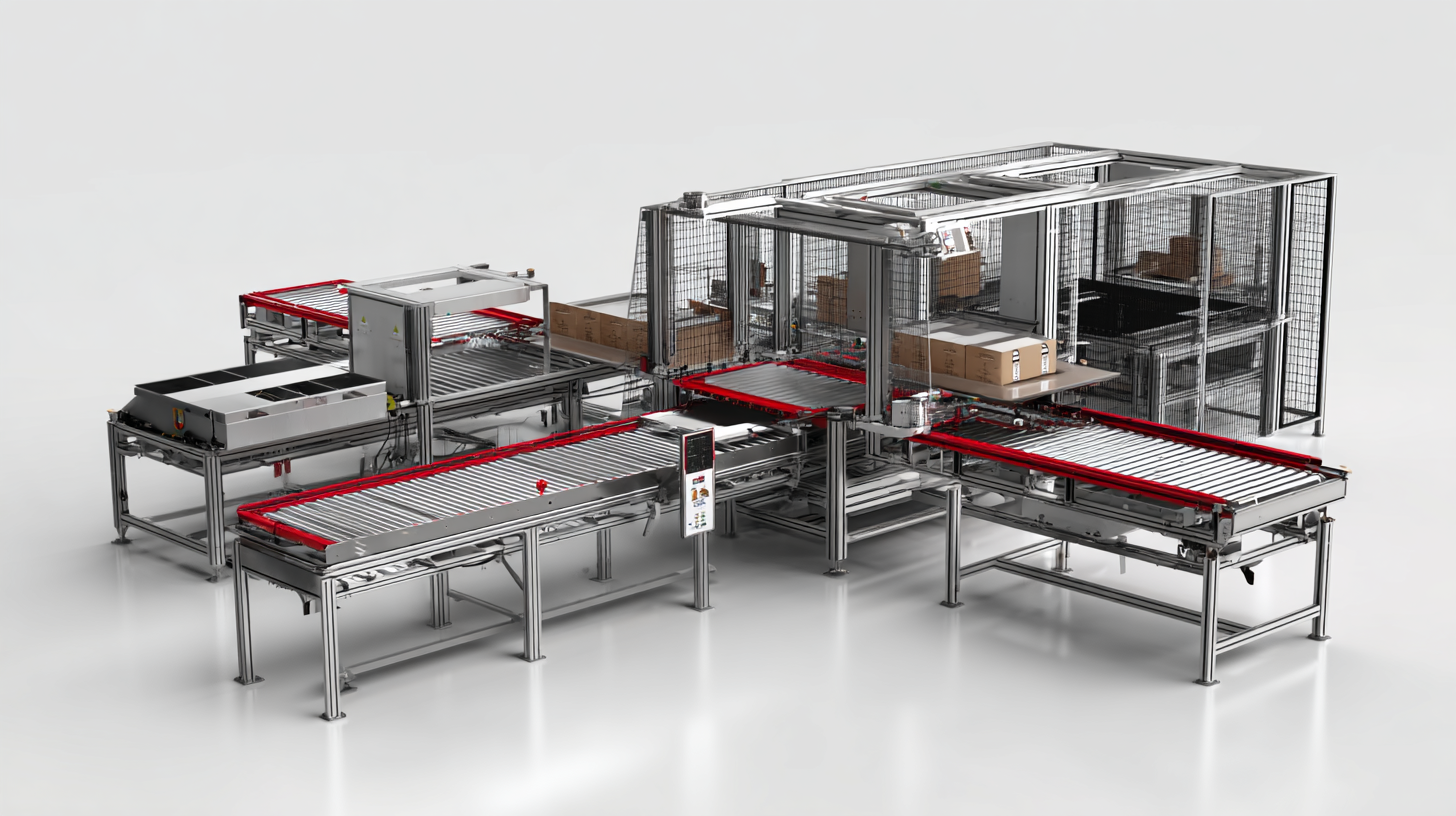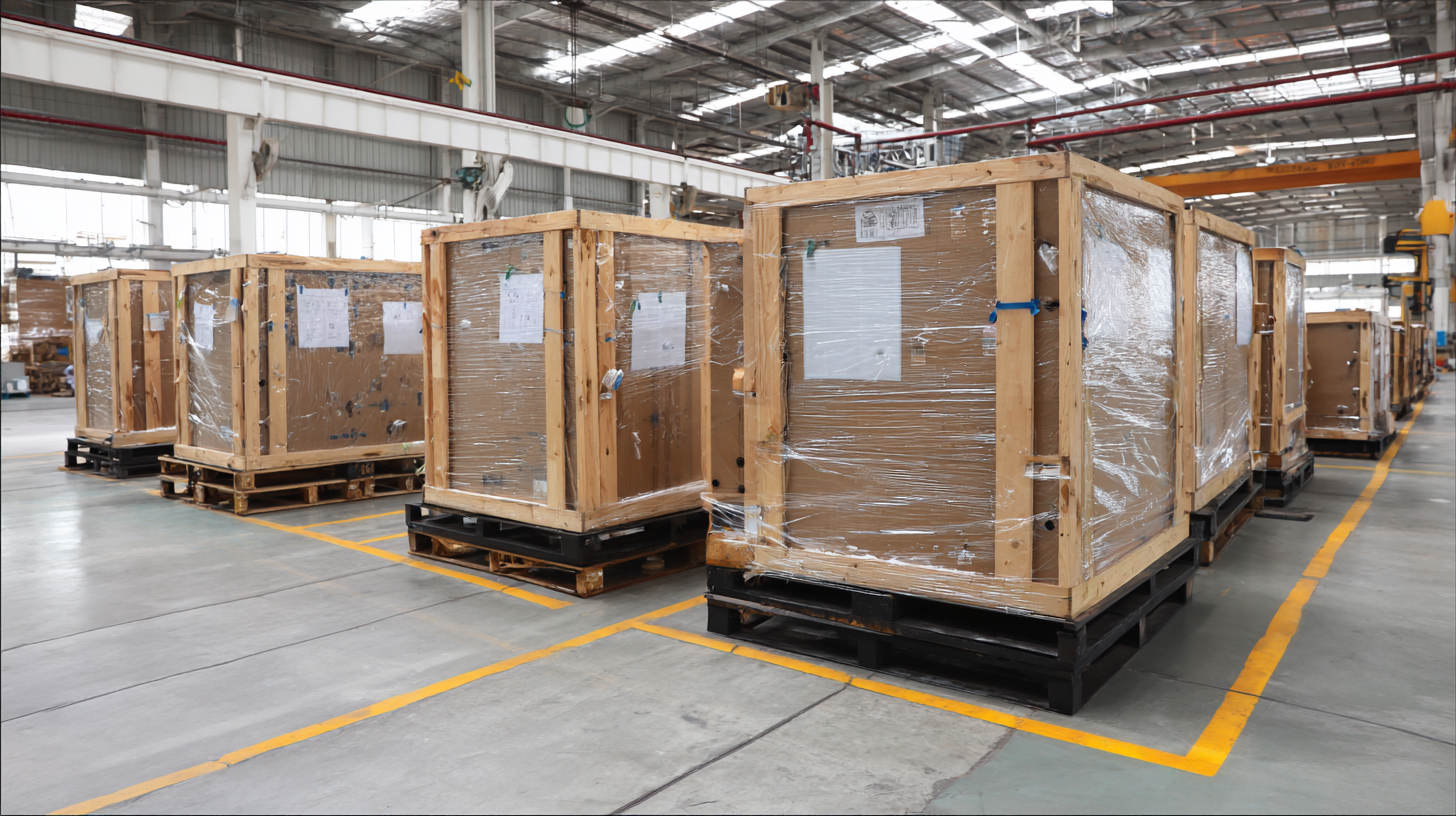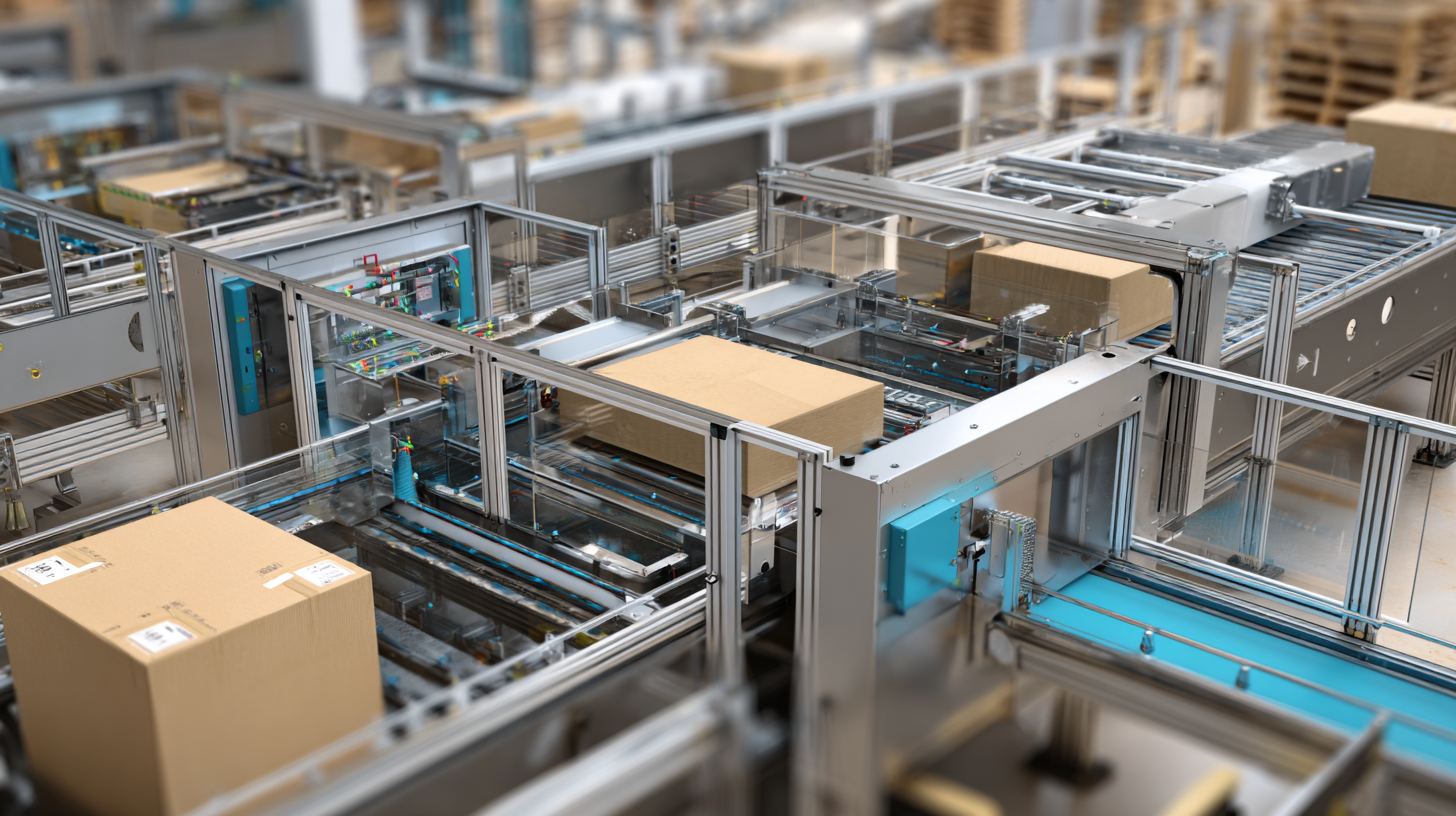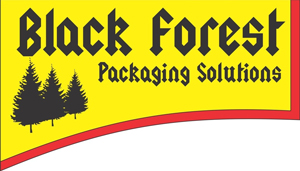7 Innovative Best Packing Equipment Solutions for Global Buyers
In today’s fast-paced global market, the efficiency and effectiveness of packing equipment can make a significant difference in the supply chain process. As businesses strive to optimize operations and reduce costs, innovative packing solutions have emerged as essential tools for enhancing productivity and ensuring product safety during transit. This blog explores seven of the most innovative packing equipment solutions that cater to the needs of global buyers. From automated packing systems to eco-friendly materials, these cutting-edge technologies not only streamline the packing process but also contribute to sustainability efforts. Whether you are a small business looking to scale up or a large corporation aiming to refine your packing strategy, understanding these advanced packing equipment options is crucial in today’s competitive landscape. Join us as we delve into the latest trends and solutions that are shaping the future of packing equipment in the global market.

The Rise of Eco-Friendly Packing Equipment in Global Supply Chains
As global supply chains evolve, the demand for eco-friendly packing equipment has surged, reflecting a growing consciousness among businesses and consumers toward sustainability. According to a recent report by Smithers Pira, the global green packaging market is projected to reach $450 billion by 2027, driven by increasing environmental regulations and consumer preferences for sustainable practices. Companies are adopting innovative packing solutions that minimize waste and utilize renewable materials, significantly reducing their carbon footprints.
One notable trend is the integration of biodegradable and compostable materials into packaging processes. A study from MarketsandMarkets highlights that the biodegradable packaging segment alone is expected to grow from $4.3 billion in 2020 to $10.3 billion by 2025. This shift not only meets regulatory demands but also resonates with consumers, as 73% of millennials are willing to pay more for sustainable packaging according to a Nielsen report. As businesses prioritize eco-friendly packing solutions, it is clear that sustainability is no longer merely a trend but a fundamental aspect of modern supply chains.
7 Innovative Best Packing Equipment Solutions for Global Buyers - The Rise of Eco-Friendly Packing Equipment in Global Supply Chains
| Solution | Type | Material | Eco-Friendly Ratio | Target Industry |
|---|---|---|---|---|
| Biodegradable Packing Peanuts | Foam Alternative | Plant-Based Materials | 100% | E-commerce |
| Recycled Paper Wraps | Wrap | Recycled Paper | 80% | Retail |
| Reusable Plastic Totes | Container | Recycled Plastic | 60% | Food & Beverage |
| Compostable Film | Film | PLA (Polylactic Acid) | 90% | Agriculture |
| Natural Fiber Bags | Bag | Jute and Cotton | 100% | Retail |
| Plant-Based Adhesives | Adhesive | Natural Resins | 80% | Manufacturing |
| Returnable Packaging Systems | System | Mixed Materials | 70% | Logistics |
Emerging Trends in Automated Packing Solutions for Efficiency Gains
 The rise of automation in packing solutions is transforming the logistics landscape for global buyers, delivering significant efficiency gains and cost savings. With cutting-edge technologies such as robotics and artificial intelligence, companies are streamlining their packing processes, minimizing human error, and enhancing operational speed. Automated systems can adapt to various product sizes and weights, ensuring a tailored approach to each packing task. The implementation of smart sensors also allows for real-time inventory tracking, helping businesses maintain optimal stock levels and reduce waste.
The rise of automation in packing solutions is transforming the logistics landscape for global buyers, delivering significant efficiency gains and cost savings. With cutting-edge technologies such as robotics and artificial intelligence, companies are streamlining their packing processes, minimizing human error, and enhancing operational speed. Automated systems can adapt to various product sizes and weights, ensuring a tailored approach to each packing task. The implementation of smart sensors also allows for real-time inventory tracking, helping businesses maintain optimal stock levels and reduce waste.
Moreover, the integration of IoT (Internet of Things) in packing equipment is paving the way for smarter supply chains. By harnessing data analytics, companies can gain valuable insights into packing performance, enabling them to optimize workflows and make informed decisions. Emerging trends also reveal a growing focus on sustainability, with eco-friendly packing materials and practices becoming a priority. As global buyers increasingly seek solutions that combine efficiency with environmental responsibility, the future of automated packing solutions looks promising, setting a new standard for operational excellence in logistics.
Leveraging Smart Technology for Enhanced Packing Precision
In today's fast-evolving packaging industry, leveraging smart technology is vital for enhancing packing precision and efficiency. Industry 4.0 has laid the groundwork, and as we transition towards Industry 5.0, the focus is heavily on integrating the Internet of Things (IoT), robotics, and artificial intelligence into packing equipment solutions. These innovations signify a transformative shift, enabling real-time data analytics that optimize packing processes and reduce errors. A recent report highlights that smart packaging solutions in retail and e-commerce markets are projected to see significant growth, driven by increasing consumer demands for efficiency and sustainability.

Tip: When choosing packing equipment, consider solutions that integrate smart technologies such as IoT sensors and machine learning algorithms. This will not only enhance efficiency but also ensure a more sustainable approach by minimizing waste.
Furthermore, advancements in precision agriculture reflect a broader trend within various sectors, emphasizing the importance of smart technologies in optimizing resource use. For instance, packaging manufacturers are adopting AI to drive improvements in predictive demand forecasting and smart packaging design. By embracing these technologies, businesses can ensure they stay ahead in a competitive market while contributing to a sustainable future.
Tip: Explore partnerships with tech firms specializing in AI and IoT to develop customized packing solutions that meet your specific operational needs and market demands.
Cost-Effective Packing Solutions: Balancing Quality and Affordability
In today's fast-paced global market, cost-effective packing solutions are essential for businesses aiming to balance quality with affordability. According to recent industry reports, the global packaging market is projected to reach $1 trillion by 2027, with a significant push towards innovative materials and efficient practices. Buyers are increasingly looking for solutions that reduce costs without compromising the integrity of their products.
Tips for achieving cost-effective packing solutions include choosing the right materials. For instance, using biodegradable packaging can not only lower costs associated with waste management but also enhance brand image. Additionally, investing in automation technology can streamline the packing process, reducing labor costs and minimizing errors. Industry studies show that companies that adopt automated packing solutions see a 20-30% reduction in operational costs.
Moreover, efficient inventory management plays a crucial role in balancing quality and affordability. By optimizing stock levels and utilizing just-in-time delivery systems, businesses can reduce excess inventory and associated holding costs. Adopting these strategies not only saves money but also promotes sustainability, aligning with modern consumer expectations and regulatory requirements.
The Impact of Custom Packing Designs on Brand Identity and Customer Satisfaction
Custom packing designs play a crucial role in shaping brand identity and enhancing customer satisfaction in a competitive market. Unique and innovative packaging not only captures the consumer's attention but also conveys the brand’s values and story. When a packaging design aligns with the brand's overall theme and message, it creates a memorable experience for customers. For instance, eco-friendly materials and minimalist designs can resonate with environmentally conscious consumers, reinforcing a brand’s commitment to sustainability.
Moreover, well-thought-out packaging can lead to increased customer satisfaction by ensuring products are protected and presented appealingly. A carefully designed package makes unboxing an enjoyable experience, often leading to positive reviews and repeat purchases. Customization in packing allows brands to cater to the preferences and expectations of their target audience, fostering a deeper connection with customers. As brands continue to innovate in their packing solutions, the impact on their identity and relationship with consumers becomes increasingly significant, paving the way for long-term loyalty.
